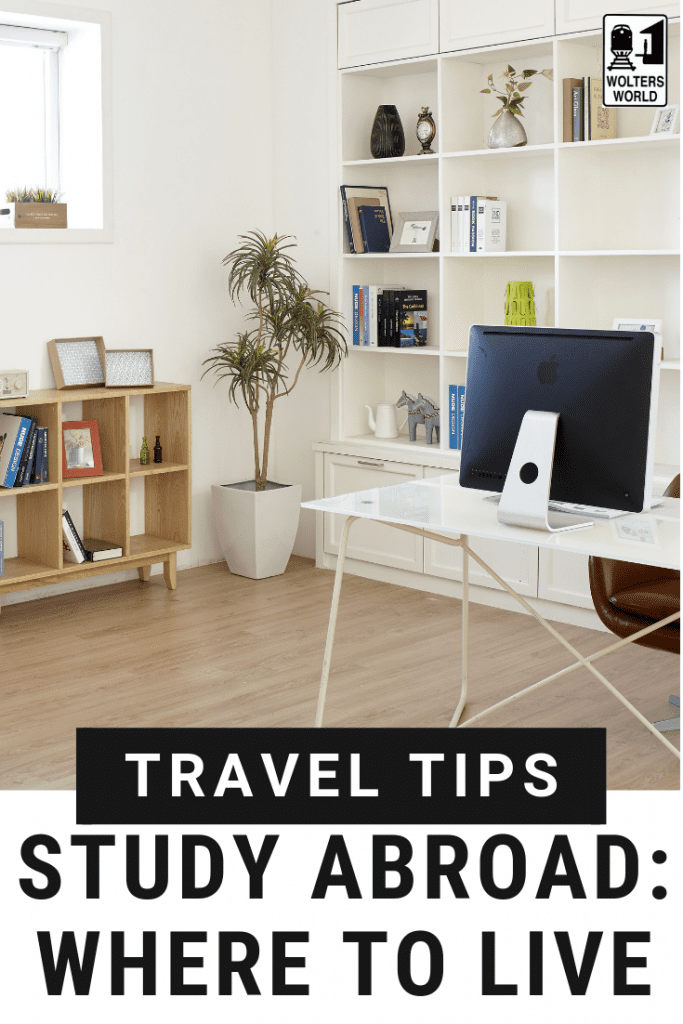Hey there, fellow travelers and potential study abroad students! Today I’m in Madrid, Spain, which is a hot-spot for study abroad programs. I studied abroad in several places, including Australia, Finland, Argentina, Brazil, and Portugal. I always had a lot of options for study abroad accommodations, and I never knew which was the right option to choose. So, with my hindsight, I thought I would share with students some tips on choosing your study abroad housing situation.
There are three basic study abroad options, so I will give you the pros and cons of each option.
Study Abroad Option #1: Living with a Host Family
Pros: Living with a host family while you study abroad can be great. You have a built-in tour guide, language learning every day, you learn a lot about the local culture, and you have someone looking out for you.
Cons: Usually, you will have more rules when you live with a host family, and you will sometimes feel obligated to hang out with them when you might rather hang out with your new friends. And, it can cramp your style, especially if you come from a home without a lot of rules and end up with some strict host parents.
Bottom Line: If your goal with study abroad is to learn the local language and culture, then staying with a host family is the best option. It’s the best way to immerse yourself and learn the most outside of school.
Watch: Five Things You’ll Love & Hate About Living with a Host Family

Study Abroad Option #2: Rent An Apartment (With or Without Roommates)
If you want to rent your own apartment, there are three options: get your own place, room with other study-abroad students, or room with a local.
Rooming with a Local: This can be a pretty difficult option to come across, especially if you are looking for a short-term rental for less than a year. It’s not the most viable option, but with things like Airbnb, you may be able to find a room to rent with a local.
Renting your own place: Having your own apartment while studying abroad allows you the most
freedom, but it is a lot more difficult to meet people and make friends when
you are isolated in your own place. It does force you to get out and meet new
people on your own, but this may not be the best option for introverts.
Renting with other students: Rooming with other exchange students gives you more options for friends, you get to hang out with people from all over the world, and you’re all going through the same thing together. The downside of this is meeting fewer locals, as you and your friends stick together and explore all the new sights.
Read: Honest Travel Safety Tips
Study Abroad Option #3: Live in a Dorm
In the United States, most dorm buildings are on campus, but that’s not always the case in Europe. In Berlin, my dorm was 45 minutes by train to the campus. Some dorms will be near the campus, and others won’t, so you have to do some research ahead of time.
Pros: You’ll be surrounded by students, and not just other exchange students. You’ll meet a ton of locals and get to know their culture and the language. Many times, these locals are not from the city where you’re studying, so making friends and going to their hometown for a weekend or holiday is a great way to see more of the region where you are studying.
Cons: Dorm rules in Europe can be pretty strict. Many times, you are not allowed to have friends stay over or visit, so that can be annoying, especially if you have friends who want to visit from your home country. Again, a bit of research can help you figure out if this is going to be an issue with your particular destination.
I hope this helps you get a sense of what your options are for study abroad accommodations. Your decision largely depends on what you are looking to get out of the study abroad experience. No matter what you choose, I wish you an amazing time in your studies and travels. For more travel tips and advice, check out these blog posts and videos:

